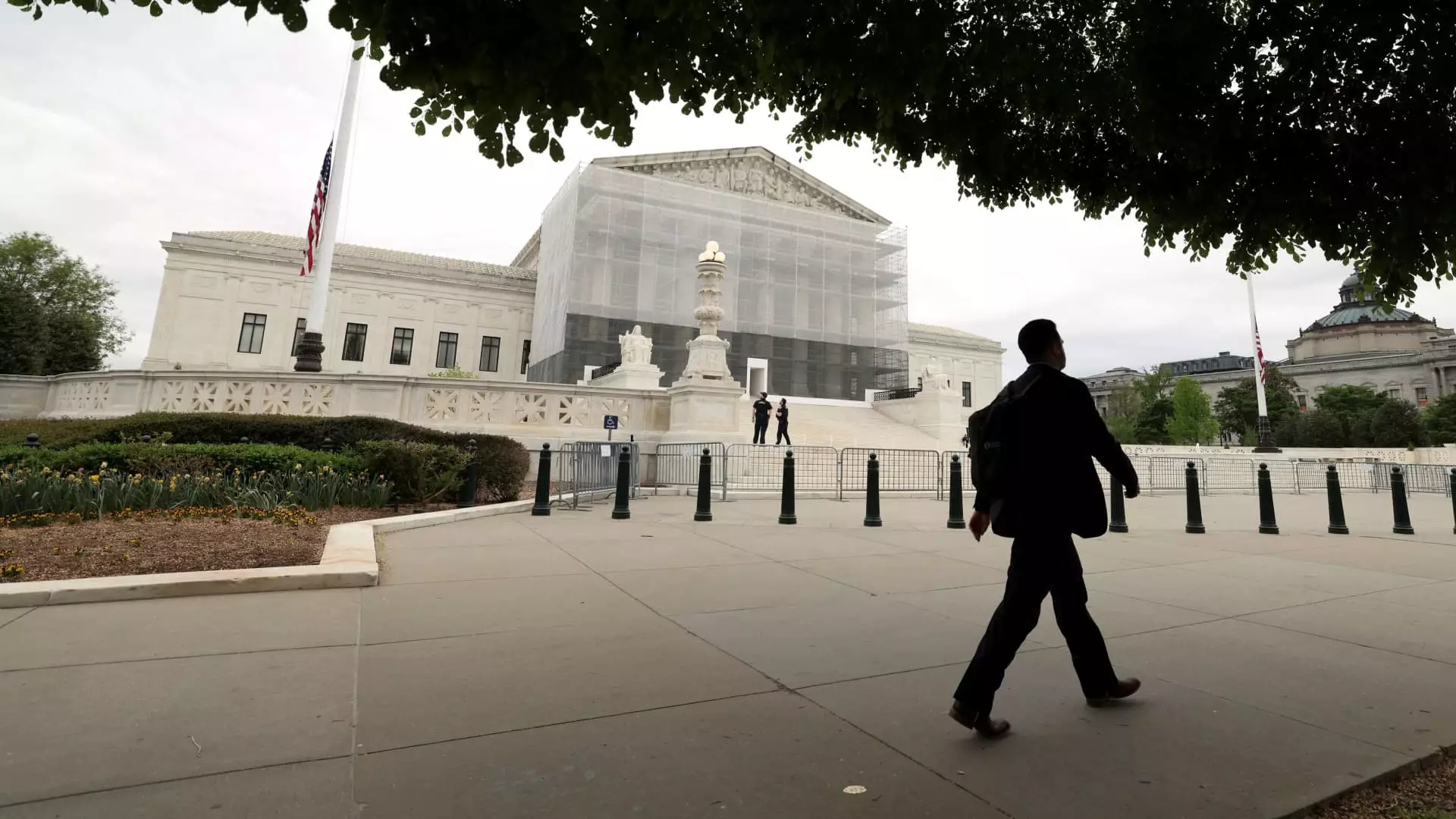In a transformative ruling that echoes through the chambers of justice, the Supreme Court has taken a decisive stand against what many may categorize as government overreach. The recent decision, rendered on a 7-2 vote, effectively halts the deportations of Venezuelan nationals accused of being affiliated with the Tren de Aragua gang. This ruling shines a light on the broader implications of the Alien Enemies Act, which has seen an uptick in use during the Trump administration. The Court’s willingness to prioritize the constitutional rights of these individuals over hastily enforced national security measures reveals an unwavering commitment to due process that should be celebrated, albeit cautiously.
Rather than allowing deportations to proceed with mere hours of notice, the Court rightly recognized the need for adequate time and resources for detainees to contest their removals. The gravity of this decision serves not just those affected but also safeguards the integrity of the legal system itself. It sends a clear message: due process is not just a procedural formality; it is a fundamental right, one that must be upheld even in politically charged environments.
In Denial of Rights: The Unfolding Crisis
This case underscores an unsettling trend in American immigration policy, where individuals find themselves stripped of their rights under the guise of national security. The invocation of the Alien Enemies Act to swiftly deport alleged gang members, without thorough consider
ation of their rights or the consequences of such actions, is a chilling reminder of a system that can be manipulated to fit political agendas. When the government claims that such deportations are justified for safeguarding national security, one must ask: at what cost?
The Court’s ruling brings to light the dire situation of Kilmar Abrego Garcia, who was mistakenly deported to a prison in El Salvador. This incident adds a grave dimension to an already precarious situation, highlighting the human toll of careless administrative actions that prioritize expediency over accuracy. The ramifications are profound: how many others are subjected to similar fate due to swift governmental actions devoid of oversight?
Constitutional Rights vs. Political Rhetoric
In his dissent, Justice Samuel Alito raised pertinent questions regarding the supposed urgency of the situation. His views, while reflecting a conservative standpoint, offer an opportunity to scrutinize the balances of power. The fact that dissent exists at the highest levels of our judiciary regarding the treatment of these detainees indicates a troubling divide in how national security is discussed in relation to individual rights.
It is cynical—and ultimately dangerous—to frame the Quick deportation of people as an issue of national security while simultaneously denying them a meaningful opportunity to defend themselves. The majority of the Court recognized that the government’s interests must align with constitutional imperatives, and this acknowledgment of nuance is crucial in navigating the complex waters of immigration policy.
The fear-mongering rhetoric employed by the Trump administration when discussing gangs like Tren de Aragua perpetuates a culture of mistrust and hostility. Labeling Venezuelan nationals as invaders, while disregarding the circumstances that led them to seek refuge in the U.S., compounds the injustices they face. Such political maneuvers minimize the human experience, reducing individuals to mere statistics in a game of electoral win-at-all-costs.
Bridging Divides: The Path Forward
As the legal proceedings move back to the U.S. Court of Appeals for the Fifth Circuit, there is an urgent need for a reevaluation of how similar cases are handled moving forward. This ruling should not be an isolated incident but rather a starting point for fostering a judicial environment that honors both national security and the rights of individuals. Legal professionals, policymakers, and citizens must unite to advocate for a humane approach that respects the dignity of every person, regardless of their background.
In a nation that prides itself on democratic values and the rule of law, it is imperative to recognize that the fight for individual rights is foundational to our identity. The recent Supreme Court ruling serves as an essential reminder that justice must not be sacrificed in the name of security, for it is through compassion and understanding that we forge a truly united society.

Leave a Reply